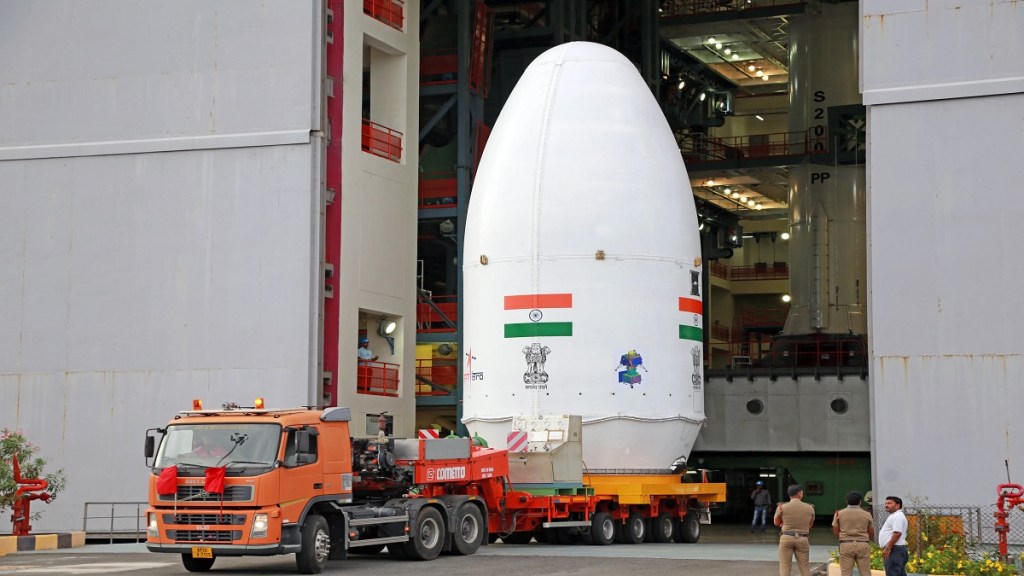Technology for MSMEs: After graduating in 1978, Subba Rao Pavuluri, who is based in Hyderabad, recognized the space sector as a promising frontier for entrepreneurship. Consequently, he joined the Indian Space Research Organisation (ISRO) the same year. Pavuluri dedicated over 14 years to his work at ISRO before realizing the potential for private sector involvement in India’s expansive space industry, even before the government officially allowed private firms to enter the sector in 2020.
In 1992, he departed from ISRO to establish Ananth Technologies, one of India’s earliest private enterprises in the space field, specializing in the production of satellite systems and subsystems for ISRO.
Pavuluri’s idea for manufacturing mission computers, control systems, sensors, and communication systems emerged during India’s launch of its first remote-sensing satellite in 1988. This period marked the rise of remote sensing, which involves using satellites or aircraft to scan the Earth’s surface and collect data on weather, drought, rainfall, agriculture, forestry, and more.
Recognizing the immense potential of applying remote sensing data to various developmental sectors across India, Pavuluri realized that government agencies alone couldn’t handle the entire endeavour. This led to an opportunity for private sector involvement in the commercialization of space-related activities. The country required substantial remote sensing and satellite data to address challenges related to water, urban development, floods, and other issues, he told FE Aspire earlier in an interaction.
To support the launch of numerous remote sensing satellites, India also needed multiple satellite launch vehicles. The market proved to be much larger than Pavuluri initially anticipated. Despite the challenges he faced, such as the lack of awareness and understanding among lenders about the nascent space market, Pavuluri persevered. He even had to mortgage his assets, including his house and land, to secure a bank loan. Starting up at the age of 44 and venturing into a capital-intensive business posed significant hurdles.
Nonetheless, Pavuluri’s high-risk bet paid off, and Ananth Technologies has since contributed its systems to over 88 satellites and more than 68 launch vehicles for the Indian space program. Notably, the company has played a role in prominent missions like Chandrayaan-I and II, Mangalyaan, and the latest Chandrayaan-III apart from the upcoming first human space mission of India, Gaganyaan, Pavuluri had said.
Also read: D2C meat delivery startup ZappFresh acquires Dr. Meat to foray into South India
Chandrayaan-3 is the third lunar mission by ISRO in the Chandrayaan series following Chandrayaan-1 and Chandrayaan-2. The mission consists of an orbiter, a lander, and a rover focusing on conducting scientific experiments and gathering data related to the Moon’s geology, mineralogy, and topography. It will also aim to study the lunar atmosphere and search for water ice deposits in the permanently shadowed regions of the Moon’s south pole.
The development of Chandrayaan-3 was initiated after the partial success of Chandrayaan-2, which encountered challenges during the soft landing of the lander and rover. ISRO identified the areas for improvement and modifications based on the lessons learned from Chandrayaan-2.
Ananth Technologies operates manufacturing facilities in Hyderabad, Bengaluru, and Thiruvananthapuram. It holds the distinction of reportedly being the first private enterprise to establish assembly, integration, and testing facilities for satellites and launch vehicles. Pavuluri emphasizes that the space sector comprises both research and development (R&D) activities and commercial endeavours. While ISRO focuses on R&D, the private sector can engage in commercial activities, reducing reliance on taxpayer funds for satellite development.
Pavuluri acknowledges that the current ecosystem and recent reforms have made it easier for aspiring entrepreneurs to enter the space industry. In 2020, Ananth Technologies had set up a full-scale satellite manufacturing facility in Bengaluru, capable of producing and assembling four large satellites simultaneously. Their next goal is to own satellites themselves, taking their operations to the next level.

